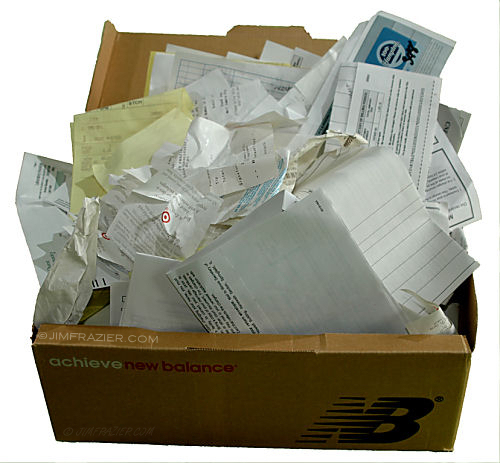
First of all, in the event that there are any auditors reading this, there are good people doing this job, including you.
I’ve met a few.
In fact, when I actually was an accountant, I’ve been lucky enough to have mostly good auditors.
There was that time when one of them had to keep leaving early to testify before a grand jury.
But that’s another story.
Most of what I talk about here are stories and examples that I’ve heard from people in my seminars, or from actual conversations with auditors. I think that most of you who are reading this, who are auditors, would agree with me. You shouldn’t be the only source of information for your victims. That’s the point of this article. Taxpayers shouldn’t trust auditors for these reasons:
1. Auditors are not necessarily well-educated accountants.
They may not even have a degree in accounting! I had one guy in my class who described an audit where he had to spend an entire afternoon with an auditor explaining depreciation to him. Now I learned about depreciation in freshman year in college. I’ll admit I had some problems with sum-of-years-digits, but I got straight-line pretty fast. If you have to teach an auditor about depreciation, do you really want to rely on him for tax information?
The state revenue department doesn’t get the top graduates either. They go on to jobs with large companies, CPA firms, graduate school, etc. The rest of the business world and the IRS gets most of the rest of the good folks. Let’s put it a different way…I know of no one who got a degree in accounting, with high honors, who skipped the recruiting fair and went directly to work for the state revenue department.
Keep in mind, for the most part, a front-line auditor’s job consists of looking at invoices all day, working in miserable spaces, surrounded by people who hate you. Not a great way to attract the best talent.
2. They usually receive bad training.
A couple of years ago, I had a group of auditors in my seminar. When I asked them at the break why they were in the meeting, they said that it was their in-service training for the entire year! One 6 hour seminar, that is at a general, introductory/intermediate level, was their training for the entire year? And this was not a small, backwater place either. But frankly, from the looks on their faces, and the questions they were asking, an introductory seminar probably was the right place for them to be.
A former auditor was in my class recently who described her new-hire training as an auditor. On the first day, after she had taken care of the paperwork, etc., her boss handed her the state audit manual and said, “Read this. You’re going out on your first auditor tomorrow. Solo.” So, after half a day of reading a manual, this recent accounting graduate was out there auditing companies, putting them threw hell, giving them bad information, etc. And all because the state only did training for new recruits every quarter.
There are some states that take auditor training seriously. I get the sense that most don’t.
So don’t assume your auditor even knows the law. At best, if they paid attention in class, they know what the trainer wants them to know. And trust me, they don’t memorize the statues and regulations.
3. They’re job is to get money.
Given that you’re dealing with auditors who are not necessarily well educated, and haven’t been well trained, the capper is that they’re told to go out and get money. So they will do what they can. Which means they will interpret the law badly, possibly not even follow the law, or maybe even intentionally bluff you. And I’ve heard lots of stories about all of these situations.
What can you do?
Don’t trust them! Make them show you where the law says you have to do it this way. If it’s the law, it’s written down. If they say, “well, that’s how we do things,” then you’ve got some room to maneuver. I call that an undocumented enforcement policy. It isn’t the law. Although a badly trained auditor may think it’s the law.
To me, the best way of keeping an auditor in line is to have a sales and use tax expert (not a generic lawyer or accountant) in on the meetings. This way they know that you’ve got someone in your corner who knows more than they do. They’ll be more careful, and they will be less inclined to bluff. And if you can’t afford your own expert, then make sure the auditor knows that you’re not going to be a pushover. Research these issues as they come up using whatever resources your boss will spring for. But make sure the auditor knows you intend to be smarter than them.
Sales Tax Guy
And again, apologies to all those good auditors out there.











